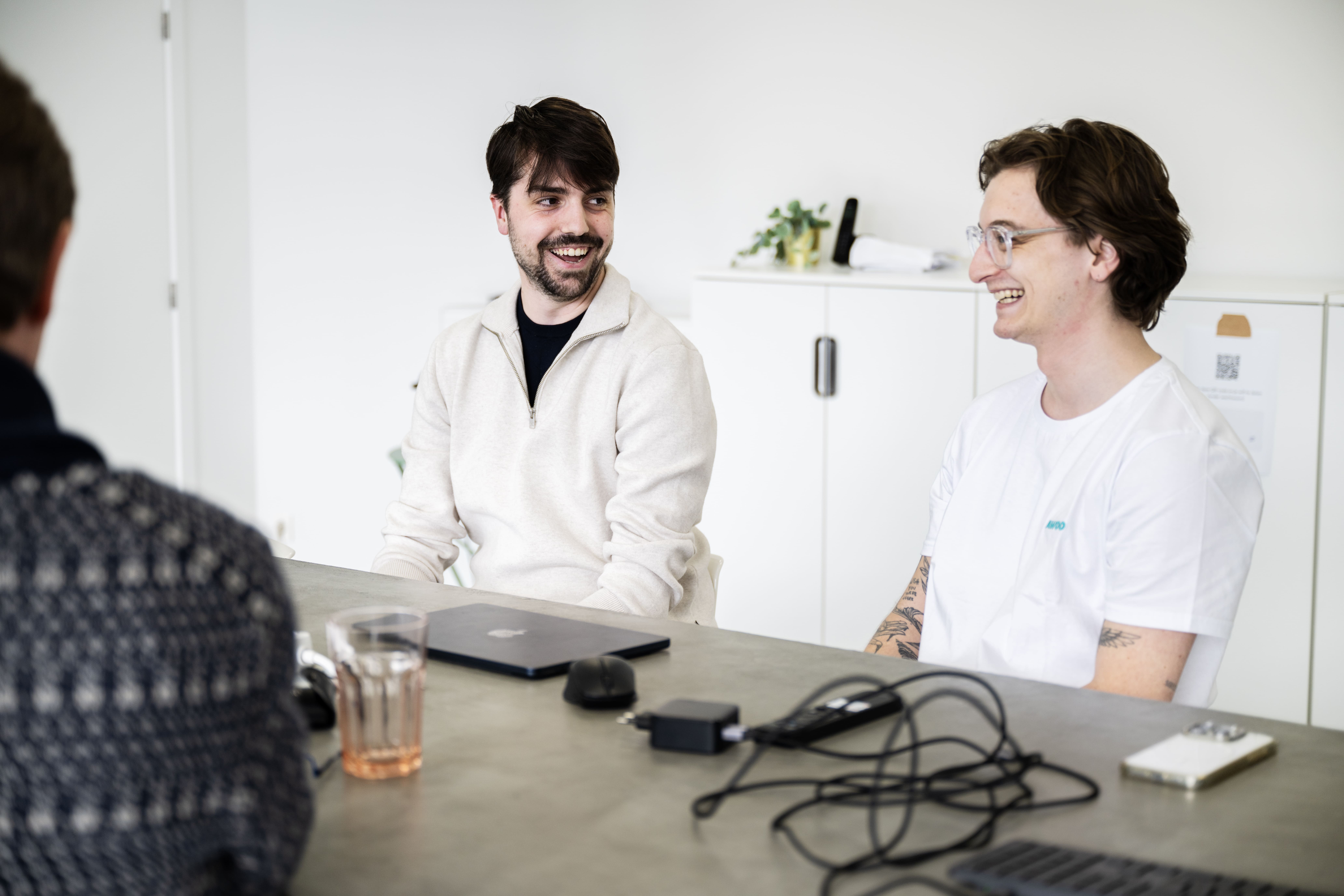How TechWolf builds trust in digital - and what other companies can learn from them
In a world where digital technology increasingly defines how we work, trust defines everything. And trust must be earned. TechWolf realizes this, as a fast-growing Belgian scale-up that deploys artificial intelligence to help organizations base their HR policies on skills. But how do you build trust in digital when you are working with sensitive data and complex technology? For TechWolf, it starts with maturity, transparency and independent validation.
Trust by design: trust from day one
“Our product manages highly sensitive HR data about employees. That means that from day one, we have made a conscious effort in handling the data responsibly,” says Jeroen Van Hautte, Chief Technology Officer and co-founder. Early on, TechWolf was certified ISO 27001. That choice was not only pragmatic, but also strategic: the process of certification enforces a way of working that encourages maturity.
Certification as an accelerator
Even in later phases, TechWolf remained committed to maturity. During the Series B investment round, it turned out that confidence in digital processes is not a nice-to-have, but a hard condition. “Without demonstrable maturity, you don't get a seat at the table with big customers or investors. Certification is an accelerator, not an administrative chore,” said Robbe Simoens, Information Security Officer.
AI is at the heart of TechWolf's product - and that is precisely why trust in digital is not an option, but a necessary condition. Recently, TechWolf became one of the first organizations in the BeNeLux to be certified ISO 42001 for AI governance. “The standard confirmed how we were already working. It gave us language and structure to further sharpen our AI governance,” says Jens-Joris Decorte, Lead Researcher.
Trust in digital as a shared responsibility
Key takeaway: trust in digital runs deep in TechWolf's corporate culture. Incidents are discussed openly, based on a “no blame, no denial” philosophy. “Every organization has incidents. The question is how you deal with them, and whether you have the courage to look honestly at your own chain of decisions,” said Robbe Simoens.
“You can only engage people when they see the importance to their own role. For developers that means clear documentation, for communications clear messages, for marketing credibility, for management strategy. Everyone wins,” says Jens-Joris Decorte.
From compliance to culture and communication
TechWolf is not limited to internal maturity. Communication about certification and responsible AI use is also an integral part of their approach. During the ISO 42001 process, the team was already communicating proactively through its own channels. There were articles, visuals and concrete tools for customers to understand the value of certification. “For us, certification is the icing on the cake. It is the external recognition of something you have been building internally for a long time: a culture in which trust in digital is central,” Jeroen Van Hautte emphasizes.

A values-driven approach opens doors
TechWolf is a distinctly values-driven organization. “We choose to work for the long term, with integrity as our foundation. That also means we embrace standards that prove we do what we say,” says Robbe Simoens.
The approach is paying off. Today they work with international players such as GSK, HSBC, Ericsson, Workday, KLM and United Airlines - companies that only engage with partners who can demonstrate maturity, transparency and reliability. Thanks to their certification and approach of AI governance, new doors are opening:
- International customers demand demonstrable maturity: with ISO 42001, TechWolf meets that.
- Larger companies want partners who can demonstrate ethical and responsible data handling.
- Investors and stakeholders also appreciate the transparency and risk management that comes with this approach.
What can other companies learn from them?
- Start early: integrate certification and governance from the start. This saves a lot of time and energy in the long term.
- Use standards as a growth tool: not as a burden, but as an opportunity to build maturity.
- Ensure top-down buy-in as well as personal relevance: let everyone see the added value for themselves.
- Communicate transparently: share not only successes but also learning processes.
- See certification as a reward for culture, not as means to an end.
TechWolf demonstrates that trust is not an end point, but a permanent ambition in which they want to keep improving. Their approach makes it clear: in the digital economy, trust is not only an ethical choice, but also a strategic and commercial advantage.

